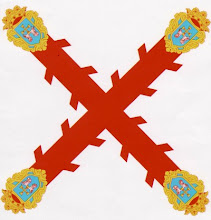We all know the familiar tune of France's now-famous Anthem, La Marsellaise (or "The Song of Marseille, for those of us who aren't Francophones). I even find myself humming it as I type this.
The song has certainly had a lasting impact, but why?
Let's start with a look at the Song's beginnings in the Era of the Revolution and of Napoleon (This shouldn't surprise you; it's one of my favorite periods and I discuss it frequently). The creation of the song is credited to Claude de Lisle, and first showed up in 1792. Now, '92 is a hugely important year for Napoleonic purposes, because it's the beginning of the War of the First Coalition, and in a larger sense, the French Revolutionary Wars.
Early Republican armies were defeated at an alarmingly constant rate, as the leadership was exceptionally poor, especially against some of Europe's oldest and most well respected armies, mainly Prussians and Austrians, but also the oft forgotten early British and Spanish involvement, plus many minor Italian and German States. And all this is just during the first Coalition.
Despite these losses, the French Republic's victory at Valmy definitely struck a chord, and soon, La Marsellaise, which had first been sung by oe of the many National Guard units that had hastily been formed, soon found it's way into the army as a marching song, and to the civilian populace as well.
The song had a practical purpose for the politicians who ran the war as well; it served as an amazing source of propaganda, something that was urgently needed for the French revolutionary generals, some of whom were massively ignorant of military matters, so they had a new source of troops for the meat grinder which was the early war.
When, in 1793, levee en masse (Mass conscription, for those who haven't had the [dis]pleasure of hearing me rant at length about the French Revolutionary Army) was finally established, the song served as a rallying cry, insuring that, in a sense, the conscription was not even needed. The songs bombastic verses, which reflected invasion by foreign powers, prompted an upsurge in patriotism which inflated the army's size to the point where it greatly outnumbered the forces invading France.
Now, when we consider all of thi, there'sone thing that we forget, and it's a huge misconception the English speaking world has about La Marsellaise, and that's its association with Napoleon Bonaparte, Emperor of the French.
Probably thanks to Tchaikovsky's 1812 Overture , we tend to play the song in our minds whenever we see the little corporal on TV or read about him.
This is Wrong. I repeat, Wrong. I'm sorry to say, but this idea is just plain inaccurate.
La Marsellaise was, believe it or not, banned under the First French Empire. Probably because Napoleon (Or more likely Berthier, his Chief of Staff) thought the song was just too revolutionary. The leaders of the Empire had gone to a great deal of trouble to create stability, so why risk that by allowing a song so steeped in Revolutionary tradition?
That's not to say, however, that the Song wasn't sung during his reign. It most certinly was. Most of you know my favorite Napoleonic Sub-topic, the Peninsular conflict, and so I'll provide my example from there.
According to the Venerable Oman's History of the Peninsular War, and David Gates' The Spanish Ulcer, even one of Napoleon's Marshals liked to hear it.
The account goes that Marshal Victor, at the 1811 Battle of Barrosa in Spain, called for the Grande Armee's band to play the song. It was late in the battle, and Victor was hoping his converged Grenadier battalions could tip the scales in the French's favor, and so disreguarded the rules in order to play La Marsellaise. It's not particularly important, but Victor lost the battle, thus becoming the latest in the line of the Marshals to sully his reputation in the Peninsula.
(Hehe, since I'm a nationalist mood, that's what they get for going up against my Spaniard ancestors. Viva Fernando VII!)
It just goes to show you that you can't keep a catchy tune down, especially on the battlefield.
For your enjoyment, I've included the 1812 Overture so you can listen for the sequence that includes La Marsellaise.
Monday, August 9, 2010
Subscribe to:
Comments (Atom)
